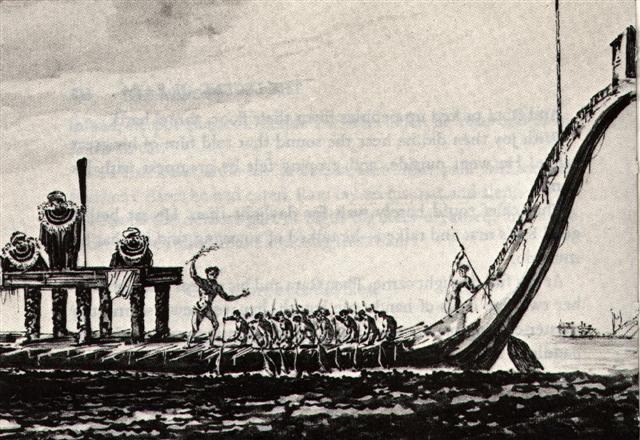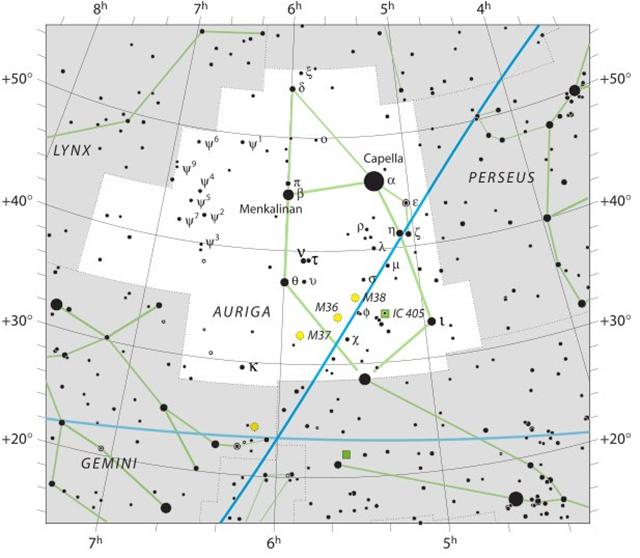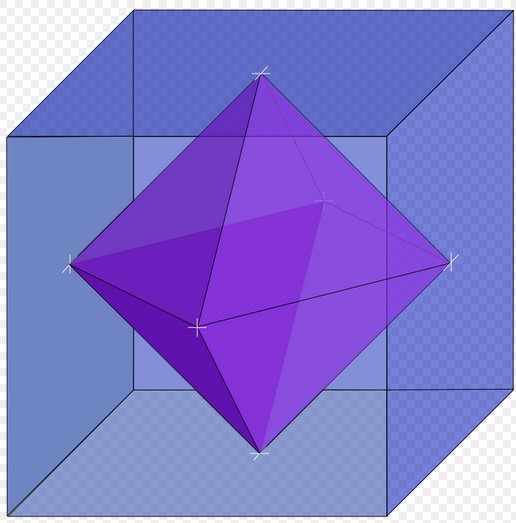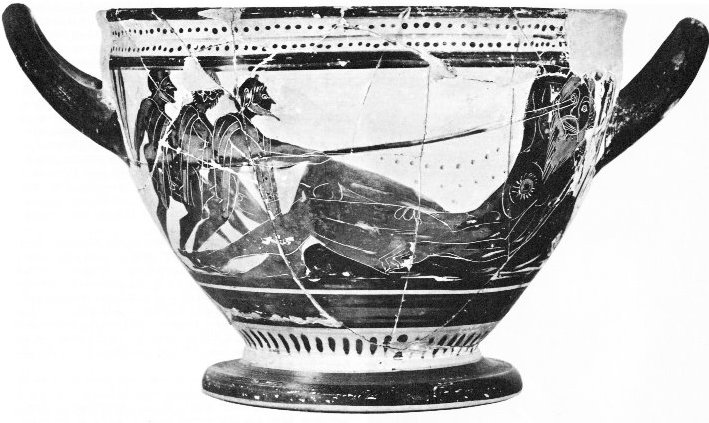248. Julius Caesar was assassinated in day 74 ('March 15) counted from 'January 1 and 354 + 74 = 428 = 2 * 214 = 4 * 107. Or should we not rather add 4 to 354 in order to reach day 350 (the Old Roman regular year) + 8 (number of nights Venus would be absent before returning as Morning Star) = 358, in which case the equation becomes 350 + 78 (= 3 * 26 as in the early days of the Pachamama tresses) = 4 * 107.
There were 107 (= 29 + 78) days from February 14 (45) to June 1 (152), i.e. 29 days from 2-14 (45, death of Cook) to 3-15 (74, death of Ceasar) and then 3 * 26 days to June 1 (45 + 29 + 6 * 13 = 152). The Julian equinox was in day 84 (March 25) = 3-15 + 10 (possibly corresponding to the difference between 364 and 354). And 22 September (265, equinox) - 107 = 158 (7 June) = 93 (3 April) + 65 (= 5 * 13 = 172 - 107 = 365 - 300) = 358 - 200 = 428 - 270. I.e. the beginning of glyph line Ca4 ought to have coincided with 28 March, which possibly was regarded as day zero of the Rigel year:
From day 88 (29 March), at the triplet of stars close to the Flaming Star (IC405, *78):
to the first of the triplet of great pyramids, to that of Khufu - corresponding to the northern hemisphere - there were 4 right ascension days. ... The basic idea of the Great Pyramid was that it should be a representation of the northern hemisphere of the earth, a hemisphere projected on flat-surfaces as is done in map-making ... The Great Pyramid was a projection on the four triangular surfaces. The apex represented the pole and the perimeter represented the equator. This is the reason why the perimeter is in relation to 2pi to the height. The Great Pyramid represents the northern hemisphere in a scale of 1:43,200 ...
I.e. from Ca4-2
to 3 April (93)
there were 5 days. And 88 (= 93 - 5) could have been alluded to as 'two and twenty four-wheeled wagons' = the place were Odysseus and his men bored out the single eye of the giant (whereas his other eye must have been lost at some earlier point in time): ... That night, he passed through the town stealing an eye from each inhabitant. Back in his foster parents' house, he roasted the eyes in the coals and ate them, laughing. Then he returned to his cradle, full and warm. He had not seen the old woman watching him from the corner - the one who never slept and who never moved because she was stone from the waist down. Next morning, amid the wailing that engulfed the town, she told what she had seen. The one-eyed people of the sky dressed in their dancing clothes, paddled the child out to mid-heaven in their canoe and pitched him over the side ... ... Odysseus and his fleet were now in a mythic realm of difficult trials and passages, of which the first was to be the Land of the Cyclopes, 'neither nigh at hand, nor yet afar off', where the one-eyed giant Polyphemus, son of the god Poseidon (who, as we know, was the lord of tides and of the Two Queens, and the lord, furthermore, of Medusa), dwelt with his flocks in a cave. 'Yes, for he was a monstrous thing and fashioned marvelously, nor was he like to any man that lives by bread, but like a wooded peak of the towering hills, which stands out apart and alone from others.' Odysseus, choosing twelve men, the best of the company, left his ships at shore and sallied to the vast cave. It was found stocked abundantly with cheeses, flocks of lambs and kids penned apart, milk pails, bowls of whey; and when the company had entered and was sitting to wait, expecting hospitality, the owner came in, shepherding his flocks. He bore a grievous weight of dry wood, which he cast down with a din inside the cave, so that in fear all fled to hide. Lifting a huge doorstone, such as two and twenty good four-wheeled wains could not have raised from the ground, he set this against the mouth of the cave, sat down, milked his ewes and goats, and beneath each placed her young, after which he kindled a fire and spied his guests. Two were eaten that night for dinner, two the next morning for breakfast, and two the following night. (Six gone.) But the companions meanwhile had prepared a prodigous stake with which to bore out the Cyclops' single eye; and when clever Odysseus, declaring his own name to be Noman, approached and offered the giant a skin of wine, Polyphemus, having drunk his fill, 'lay back', as we read, 'with his great neck bent round, and sleep that conquers all men overcame him.' Wine and fragments of the men's flesh he had just eaten issued forth from his mouth, and he vomited heavy with drink. 'Then', declared Odysseus, I thrust in that stake under the deep ashes, until it should grow hot, and I spake to my companions comfortable words, lest any should hang back from me in fear. But when that bar of olive wood was just about to catch fire in the flame, green though it was, and began to glow terribly, even then I came nigh, and drew it from the coals, and my fellows gathered about me, and some god breathed great courage into us. For their part they seized the bar of olive wood, that was sharpened at the point, and thrust it into his eye, while I from my place aloft turned it about, as when a man bores a ship's beam with a drill while his fellows below spin it with a strap, which they hold at either end, and the auger runs round continually. Even so did we seize the fiery-pointed brand and whirled it round in his eye, and the blood flowed about the heated bar. And the breath of the flame singed his eyelids and brows all about, as the ball of the eye burnt away, and the roots thereof crackled in the flame. And as when a smith dips an ax or adze in chill water with a great hissing, when he would temper it - for hereby anon comes the strength of iron - even so did his eye hiss round the stake of olive. And he raised a great and terrible cry, that the rock rang around, and we fled away in fear, while he plucked forth from his eye the brand bedabbled in much blood. Then maddened with pain he cast it from him with his hands, and called with a loud voice on the Cyclopes, who dwelt about him in the caves along the windy heights. And they heard the cry and flocked together from every side, and gathering round the cave, called in to ask what ailed him. 'What hath so distressed thee, Polyphemus, that thou criest thus aloud through the immortal night, and makest us sleepless? Surely no mortal driveth off thy flocks against thy will: surely none slayeth thyself by force or craft?' And the strong Polyphemus spake to them again from out of the cave: 'My friends, Noman is slaying me by guile, nor at all by force.' And they answered and spake winged words: 'If then no man is violently handling thee in thy solitude, it can in no wise be that thou shouldst escape the sickness sent by mighty Zeus. Nay, pray thou to thy father, the lord Poseidon.' On this wise they spake and departed; and my heart within me laughed to see how my name and cunning counsel had beguiled him ...
Given that the pyramid of Khufu was a map of the northern hemisphere, then the pyramid of Khafre should be a map of the southern (female) hemisphere. One of the missions of Captain Cook had been to map where down south of the equator the not as yet known land masses were, those needed in order to give a harmonious balance between the hemispheres. But he could not succeed because there was more water down in the south than up in the north, there was an imbalance between the pair of hemispheres. The beginning of the text on side a of the C tablet together with the beginning of its side b were evidently designed to document 6 extra days and now we have uncovered what could be another such set of 6 extra days, this time at the beginning of glyph line Ca4:
396 (Cb1-4) - 314 (π) = 82 (Ca4-6) = 78 (Ca4-2) + 4 = 392 (Ca14-29) - 314. ... Menkaure was allegedly a much more benevolent Pharaoh than his predecessors. According to legends related by Herodotus, he wrote the following: This Prince (Mycerinus) disapproved of the conduct of his father, reopened the temples and allowed the people, who were ground down to the lowest point of misery, to return to their occupations and to resume the practice of sacrifice. His justice in the decision of causes was beyond that of all the former kings. The Egyptians praise him in this respect more highly than any other monarchs, declaring that he not only gave his judgements with fairness, but also, when anyone was dissatisfied with his sentence, made compensation to him out of his own purse and thus pacified his anger. The Gods however ordained that Egypt should suffer tyrannical rulers for a hundred and fifty years according to this legend. Herodotus goes on: ... An oracle reached him from the town of Buto, which said 'six years only shalt thou live upon this earth, and in the seventh thou shalt end thy days'. Mycerinus, indignant, sent an angry message to the oracle, reproaching the god with his injustice - 'My father and uncle,' he said 'though they shut up the temples, took no thought of the gods and destroyed multitudes of men, nevertheless enjoyed a long life; I, who am pious, am to die soon!' There came in reply a second message from the oracle - 'for this very reason is thy life brought so quickly to a close - thou hast not done as it behoved thee. Egypt was fated to suffer affliction one hundred and fifty years - the two kings who preceded thee upon the throne understood this - thou hast not understood it'. Mycerinus, when this answer reached him, perceiving that his doom was fixed, had lamps prepared, which he lighted every day at eventime, and feasted and enjoyed himself unceasingly both day and night, moving about in the marsh-country and the woods, and visiting all the places he heard were agreeable sojourns. His wish was to prove the oracle false, by turning night into days and so living twelve years in the space of six ...
... July (31) + August (31), the new months added by Julius Caesar, = 62 = 70 - 8, and 300 (Khufu + Khafre) + 2 * 6 (Menkaure) = 372 = 6 * 62 ...
|
|||||||||||||||||||||||||||||||||||||||||||||||||||||||||||||||||||||||||||||||||||||||||||||||||||||||||||||||||||||||||||||||||||||||||||||||||||||||||||||||||||||||||||||||||||||||||||||||||||||||||||||||||||||||||||||||||||||||||||||||||||||||||||||||||||||||||||||||||||||||||||||||||||||||||||||||||||||||||||||||||||||||||||||||||||||||||||||




















.jpg)


